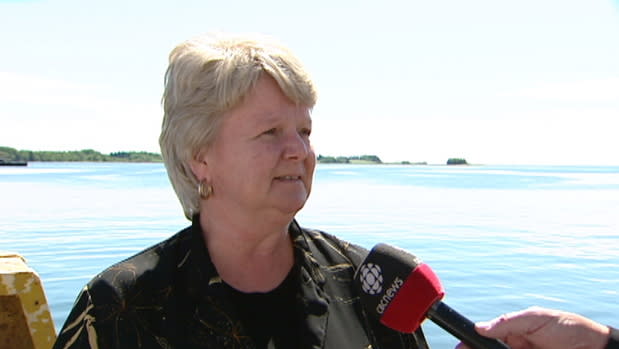Shea calls criticism of EI reform 'fear mongering'

Federal Revenue Minister Gail Shea tried to calm nerves about upcoming changes to the employment insurance program while speaking in P.E.I. Friday.
“There’s been a lot of fear mongering that EI’s going to be taken away,” she said. “It’s not. It’s putting people back to work."
Her comments come just days after the Atlantic Premiers said changes could have a devastating impact on the region’s economy.
The new rules would force frequent users of EI to take a job that pays 70 per cent or more of their current wage after six weeks without work.
Shea said the government will be reasonable, and will not force people out of communities to take jobs they don’t want.
“If there are jobs available within their area, within their skill set, within their wage range, then they’re obligated to pursue those jobs. It’s not a drastic change. EI will be there for people who can’t find a job.”
Shea comes from a fishing community near Tignish, and is familiar with the seasonal nature of the industry and its importance to the Island’s economy.
But the Atlantic premiers this week accused the government of being out of touch with the reality of seasonal workers.
“They provide hundreds and hundreds and hundreds of millions of dollars to our economy,” said Newfoundland and Labrador Premier Kathy Dunderdale. “But it’s seasonal work. So how do we protect those industries if you’re not going to do it through the EI program?”
On P.E.I., the Seafood 2000 Fishplant brought in 105 migrant workers from China. Jobs that the federal government says need to go to locals first.
“We have jobs where we’re bringing in large numbers of temporary foreign workers, so what we’re saying is, you know, we should have Canadians working first,” said Shea.
P.E.I.’s Innovation Minister Allan Roach has also voiced his concerns to Ottawa. He said the plan has potential but he’s still nervous.
“The more Islanders we can get to go out and go to work, the better. We certainly support that 100 per cent, as long as there’s reasonableness and it’s fair the way it’s done, that’s great,” he said.

